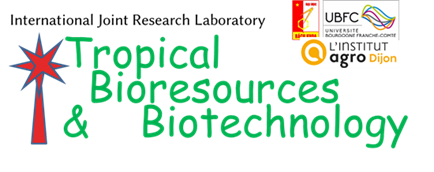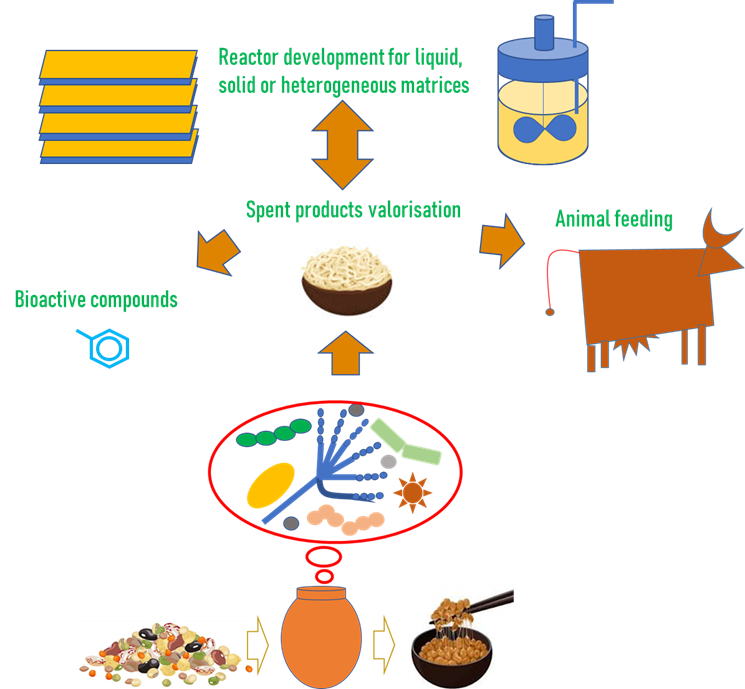
International Joint Research Laboratory
After several decades of collaboration, Hanoi University of Science & Technology and PAM lab have set up this international laboratory working on (1) the valorisation of tropical plant extracts as antioxidants, colourings, flavours & fragrances with an encapsulation dimension and on (2) microorganisms, from traditional fermented foods to new foods, on the biotechnological valorisation of agricultural by-products and on microbiological safety issues.
An important dimension is the understanding of the functions of microorganisms found in traditional fermented foods and the related valorisation of interesting strains in a new precision fermentation aimed at developing organoleptic properties and mitigating off-flavours, antimicrobial compounds, toxins and pesticides (Figure 1).
The valorisation through microbial biotechnology is also important and microorganisms are used to ferment, extract or improve formulation of spent agriculture and food products to produce either bioactive compounds or nutritive animal feeding (Figure 2). In that goal, the fermentation techniques and reactors are also investigated.
For all projects, works are made in accordance with the international Convention on Biological Diversity and the Nagoya protocol on Access and Benefit-sharing. The lab has thus developed a know-how in this matter.

Projects developed in this International Joint Lab have also involved other labs in South East Asia (mainly Vietnam, Cambodia and Thailand) leading to the creation of a network called Tropical Fermentation. Strong links are being developed with the International Joint Research Center on Food Security of Biotec Thailand, Thammasat University, NSTDA and Queen University Belfast.
Work is also being carried out with a number of companies in search of our expertise in the science of tropical fermented foods, as well as local contacts and ways of managing this cross-cultural environment.

![[Translate to English:] .](/fileadmin/form_definitions/AFIM/Laboratoire_International_de_Recherche_Associ%C3%A9e/tropical_bioresources_image_1.png)






